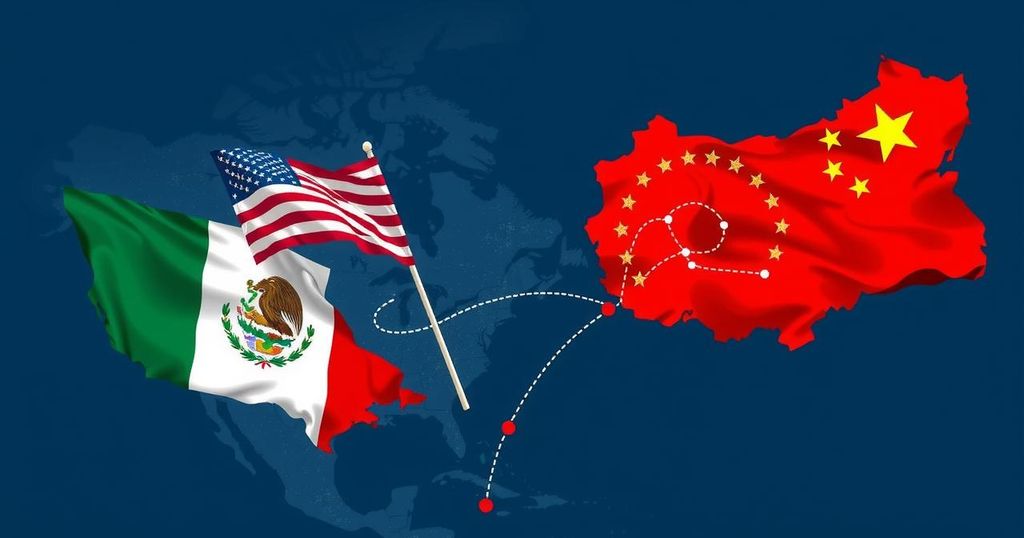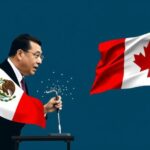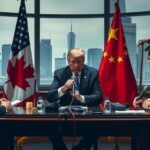Trump Announces Tariffs on Mexico, Canada, and China to Combat Illegal Trade
President-elect Donald Trump plans to enact a 25% tariff on imports from Mexico and Canada, and a 10% tariff on Chinese products, aiming to address illegal immigration and drug trafficking from these countries. He emphasized that these tariffs would enforce accountability until these issues are resolved, despite warnings from economists about potential economic downsides.
In a recent announcement, United States President-elect Donald Trump has declared his intention to implement a 25 percent tariff on all imports from Mexico and Canada, alongside an additional 10 percent tariff on products from China. This decision is part of his strategy to combat illegal immigration and drug trafficking, which he referred to as an “invasion.” The tariffs are set to take effect on the very first day of his administration and will remain until both neighboring countries address these issues effectively.
Trump has expressed that both Mexico and Canada possess the means to resolve the ongoing problem of illegal border crossings and drug trade, and he articulated on his platform, Truth Social, that they must “pay a very big price” until they take actions to resolve these concerns. Furthermore, regarding China, he criticized the country’s failure to control fentanyl smuggling, which has significantly affected the U.S., noting that despite promises of severe penalties for drug offenses, enforcement has evidently been lacking. During his campaign, Trump suggested rates of tariffs that could reach as high as 200 percent on certain imports, indicating a steadfast approach toward protectionist trade measures.
Economists continue to caution that such broad tariffs may result in increased costs for American consumers and could impede global economic growth. However, Trump’s advocates assert that these tariffs could stimulate domestic manufacturing and empower his administration in negotiating trade agreements more favorably with other nations.
This article discusses President-elect Donald Trump’s proposed tariffs aimed at combating illegal immigration and drug trafficking across the U.S. borders with Mexico and Canada, alongside a focus on China due to fentanyl smuggling. Tariffs are a key feature of Trump’s economic strategy, with potential implications for manufacturing jobs and international trade relations. These measures reflect continued discussions around protectionism in U.S. trade policy, which have historically received mixed reactions from economists.
In summary, President-elect Trump has outlined plans to impose significant tariffs on imports from Mexico, Canada, and China, in an effort to tackle pressing issues of illegal immigration and drug trafficking. His intention to implement these tariffs on his first day in office signifies a strong stance on trade policy. While supporters believe these measures could revitalize manufacturing jobs, critics warn of potential adverse economic impacts on consumers and international relations.
Original Source: www.aljazeera.com








Post Comment